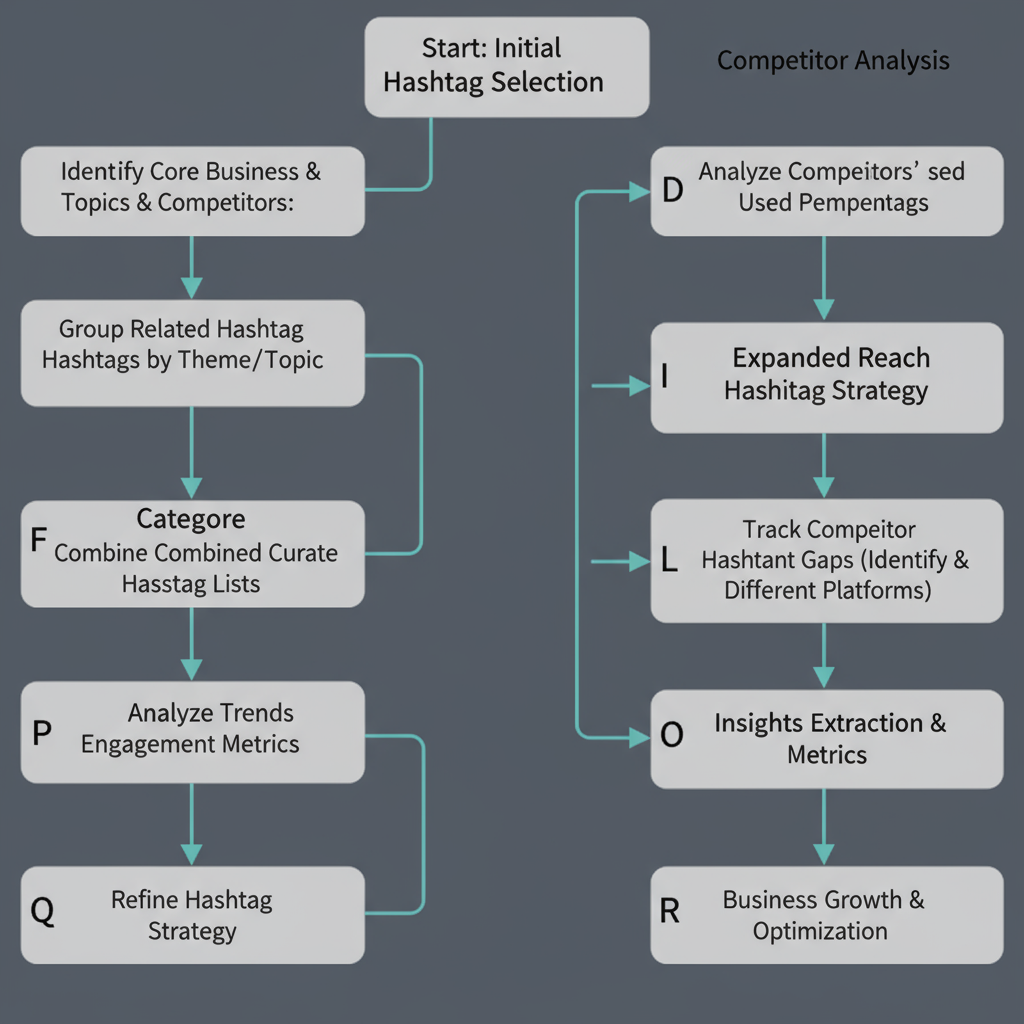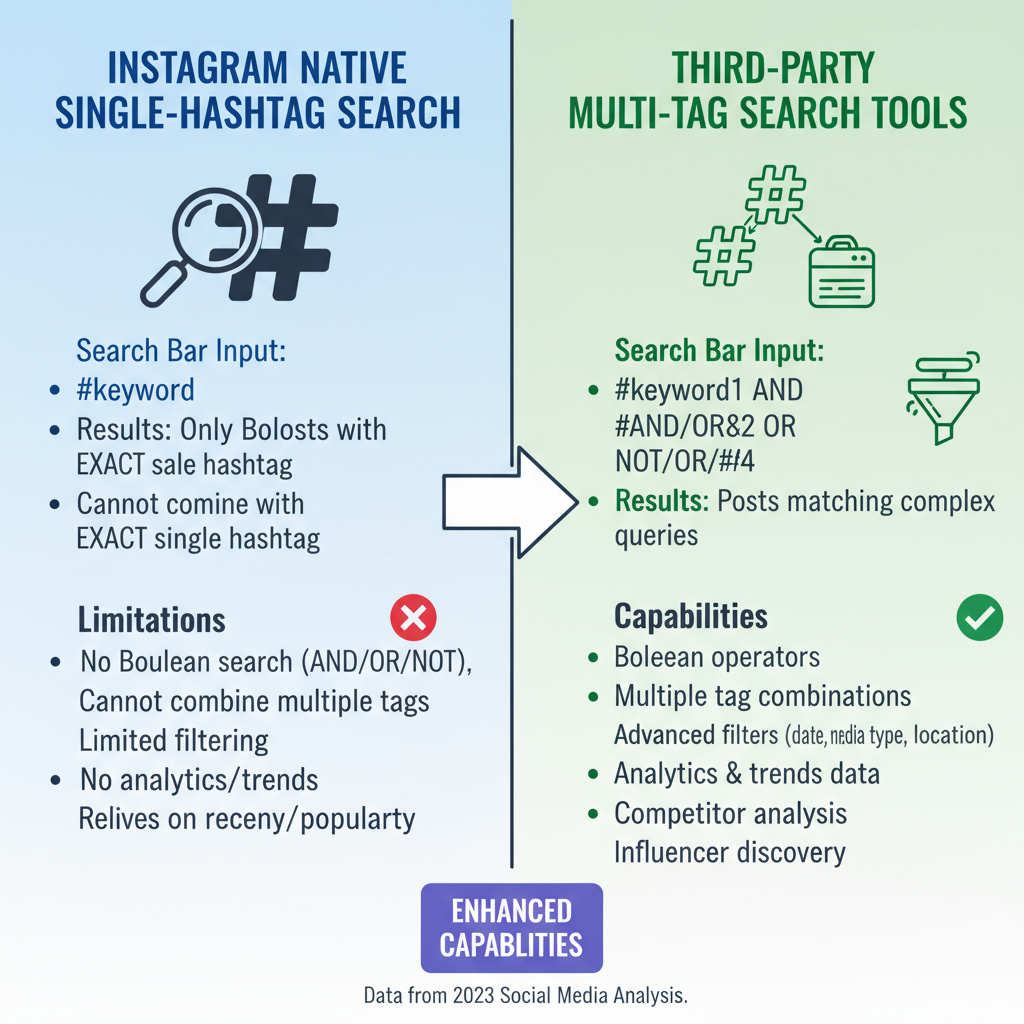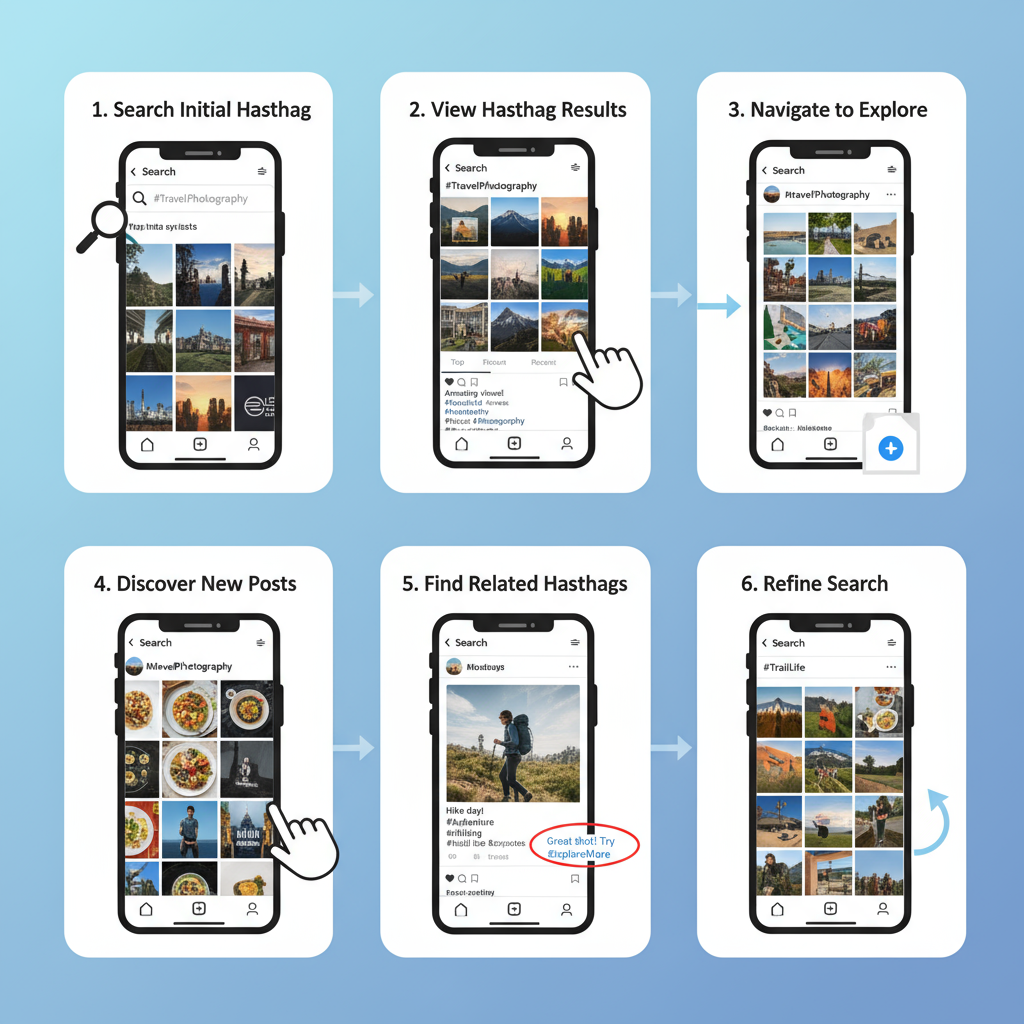how to search Instagram using multiple tags effectively
Learn how to search Instagram using multiple hashtags, from manual methods to third-party tools, to refine content discovery and boost engagement.

Introduction to Instagram Hashtag Search and Its Limitations
Instagram hashtag search is a core discovery feature that helps users connect with the right audience and find relevant content. For creators, marketers, and brands, learning how to search Instagram multiple tags efficiently can unlock more precise results and stronger engagement. While searching a single hashtag like `#foodie` yields vast possibilities, combining hashtags such as `#vegan` AND `#dessert` is not straightforward within Instagram’s native tools. This limitation means users must explore manual workarounds or rely on third-party apps to refine their search.

In this guide, we’ll examine why multiple hashtags matter, manual and automated ways to search them, potential tools, and strategic tips for expanding reach.
---
Importance of Multiple Hashtags for Precise Content Discovery
When you use multiple hashtags together, you filter Instagram’s enormous database into a smaller, more targeted set. This enables:
- Relevance: Fine-tunes results to closely match your niche or topic.
- Time Efficiency: Reduces endless scrolling through unrelated content.
- Better Engagement: Improves chances of connecting with the right followers.
Example Scenarios
- Travel blogger seeking posts tagged `#solotravel` and `#safetravel`.
- Fashion influencer combining `#minimalstyle` with `#sustainablefashion`.
- Businesses tracking posts tagged with both their brand name and `#review`.
---
Manual Method: Combining Multiple Tags Using Search and Explore
While Instagram doesn’t have a native multi-tag search, you can approximate it with manual steps:
- Search the First Hashtag: Enter your initial hashtag and select the `Tags` tab in search.
- Select the Posts Tab: Browse top or recent posts for that tag.
- Refine via Explore: Use the Explore feed to find posts with related hashtags.
- Manual Filtering: Review captions and comments to identify the second hashtag.
Although this is slower, it works well for quick, small-scale searches.

---
Using Caption and Comment Keywords to Simulate Multi-Tag Search
Instagram currently lacks built-in Boolean operators (AND, OR). However, you can work around this:
- Phrase Search in Captions: Use queries like `"vegan dessert"` to find both keywords in post captions.
- Comment Search: Less accurate, but sometimes reveals posts missed in caption searches.
- On desktop, Ctrl+F or Cmd+F can quickly highlight keywords in loaded post batches.
---
Third-Party Tools and Apps for Multi-Tag Search
If you need robust multi-hashtag filtering, professional social media tools can help — just be aware of risks and terms of service.
| Tool | Multi-Hashtag Filter | Pros | Cons |
|---|---|---|---|
| Hootsuite | Yes | Robust dashboard, scheduling options | Paid plans, learning curve |
| Later | Limited | User-friendly, visual planner | Advanced filters only in higher tiers |
| Hashtagify | Yes | Detailed hashtag analytics | Subscription required |
Advantages:
- Significant time savings.
- Batch analysis and engagement tools.
- In-depth analytics on tag usage and performance.
Disadvantages:
- Subscription or one-time costs.
- Privacy and data access concerns.
- Potential TOS violations if used improperly.
---
Strategic Use of Related Hashtags for Expanding Reach
If an exact AND search is too narrow, strategically blend related tags to maintain relevance while reaching a wider audience:
- Pair niche tags with location-based tags (`#coffeelover` + `#london`).
- Use synonyms or related terms (`#minimalistoutfit`, `#capsulewardrobe`).
- Explore Instagram’s related tag suggestions when searching a primary hashtag.
---
How Businesses Leverage Multi-Tag Search for Competitor Insights
Companies often combine hashtags for deeper analysis:
- Campaign Tracking: Merge a product-related tag with a campaign hashtag.
- Sentiment Monitoring: Pair brand hashtags with emotional keywords like `#love` or `#fail`.
- Influencer Discovery: Find creators posting within specific content intersections.
Example: A sportswear brand could search for `#runninggear` + their brand hashtag to assess product placement versus competitors.
---
Content Curation Using Multiple Hashtags
For content creators and managers, multi-tag searches are valuable for:
- Identifying trends and emerging topics.
- Collecting user-generated content for reposts.
- Planning campaigns with creative tag combinations (`#diycraft` + `#ecofriendly`).
---
Common Mistakes to Avoid with Multi-Tag Search
- Irrelevant Tagging: Can dilute search results and reduce engagement.
- Tag Overuse: Too many tags can appear spammy and harm credibility.
- Banned Hashtags: Risk of shadowban or reduced reach.
- Ignoring Tag Context: Some tags may be used for unrelated content.
---
Privacy and Safety When Using Third-Party Apps
Prioritize account protection by:
- Avoiding tools that require your password — prefer secure OAuth logins.
- Checking for GDPR or local compliance for data protection.
- Reading up on Instagram’s Terms of Service before integrating third-party software.

---
Emerging Trends in Hashtag Search Technology
Instagram’s algorithm is evolving toward more contextual and semantic search features. Possible future developments:
- Integrated Boolean search.
- AI-driven related tag suggestions.
- Unified search experiences across Meta platforms.
---
Conclusion and Actionable Steps
Effectively searching Instagram using multiple hashtags requires creativity, persistence, and sometimes external support. With these methods, you can refine discovery, boost engagement, and sharpen competitive insights.
Try this now:
- Define 2–3 core hashtags for your niche.
- Test manual AND-style searches via captions and Explore.
- Evaluate one trusted analytics tool for hashtag performance.
- Track and adapt based on results.
By implementing these strategies, you can harness Instagram’s hashtag system as a precision tool for targeted content discovery and audience growth.



